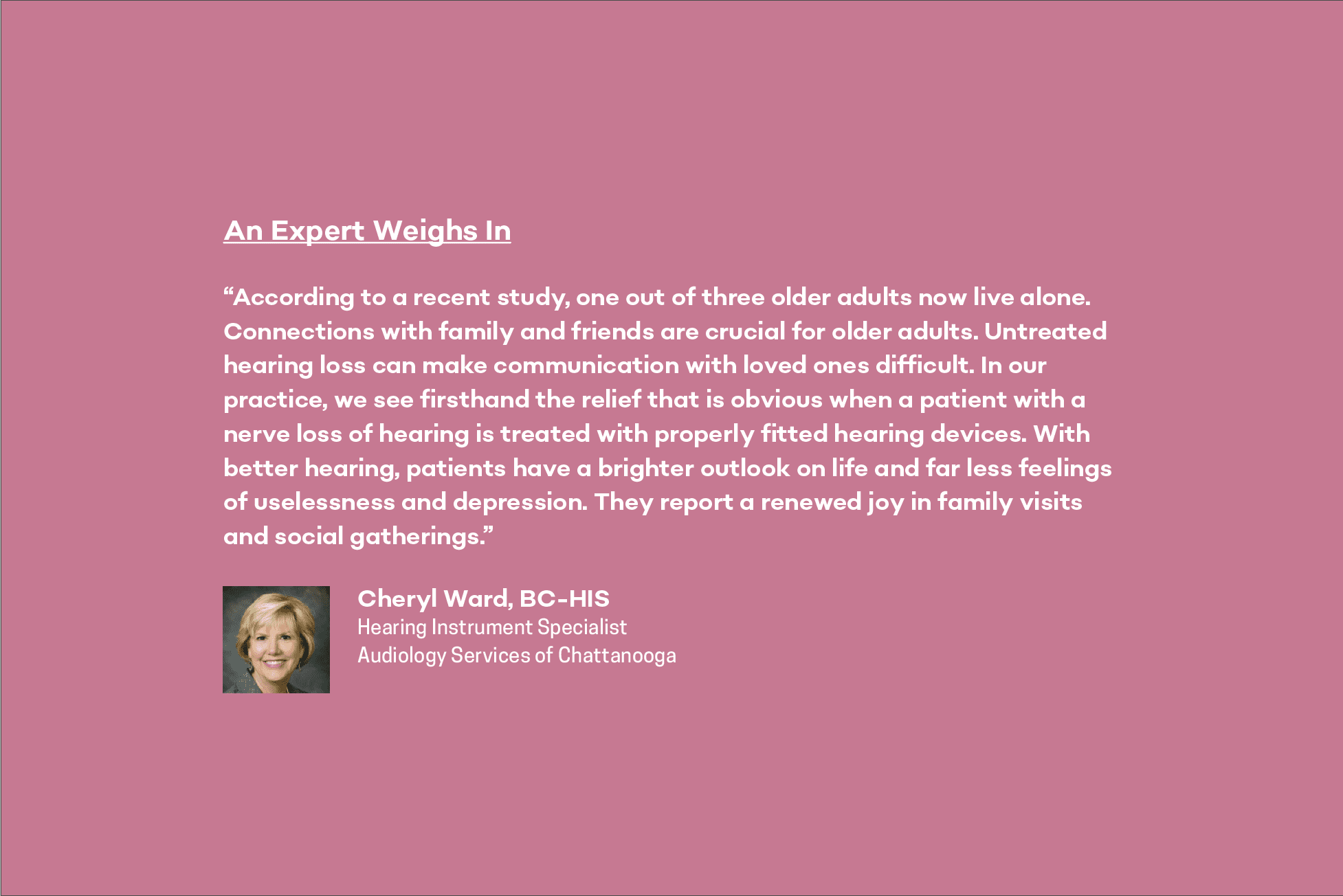Annual Women’s Health Section
Hearing loss affects 1 in 5 people and is strongly linked to loneliness. Don’t be a statistic!
By Lucy Morris
The Prevalence of Hearing Loss
As many as one-third of women in their 50s and two-thirds of women in their 60s are facing some degree of hearing loss. Beyond that, the pervasiveness of hearing loss in younger adults, specifically those in their 20s and 30s, is increasing. While women are statistically more likely than men to admit to hearing loss, the number of women seeking treatment is still surprisingly low.
The Side Effects of Hearing Loss
Unfortunately, if left untreated, hearing loss can affect a woman’s quality of life. In fact, a study performed by the National Institute on Deafness and Other Communication Disorders (NIDCD) reported that women with hearing loss are twice as likely to develop depression as those without hearing loss. A loss of hearing can cause women to disengage from social interaction. Activities that require considerable communication with others are not enjoyable anymore – they’re stressful. This isolation can quickly spiral into a depression that’s tough to manage.
Given the effects of COVID-19, women with a loss of hearing are experiencing more social isolation and loneliness than ever before. Physical distancing impacts relationships with others, and remote communications and e-conferencing technology make it difficult to put a voice with a face. Beyond that, facial coverings make it impossible to read lips.
Knowing the Signs
Since loneliness and depression are common side effects of hearing loss, it’s important to recognize the signs. The more obvious symptoms include sadness and feelings of hopelessness, but other lesser known symptoms can be equally as devastating. Fatigue, irritability, loss of appetite, difficulty concentrating, and loss of interest in social activities can all interfere with normal functioning. And since women are the social hub of groups and families, their emotional discomfort can have a ripple effect that touches all of their loved ones.
Getting Tested
For a woman dealing with loneliness and depression caused by or worsened by an underlying loss of hearing, a hearing test could help her avoid unnecessary medications and re-engage in life. Hearing aids can provide immense relief, and there are numerous types available depending on your preferences. Your hearing professional can determine the type of hearing loss, as well as the degree, and make device recommendations based on your results. HS


